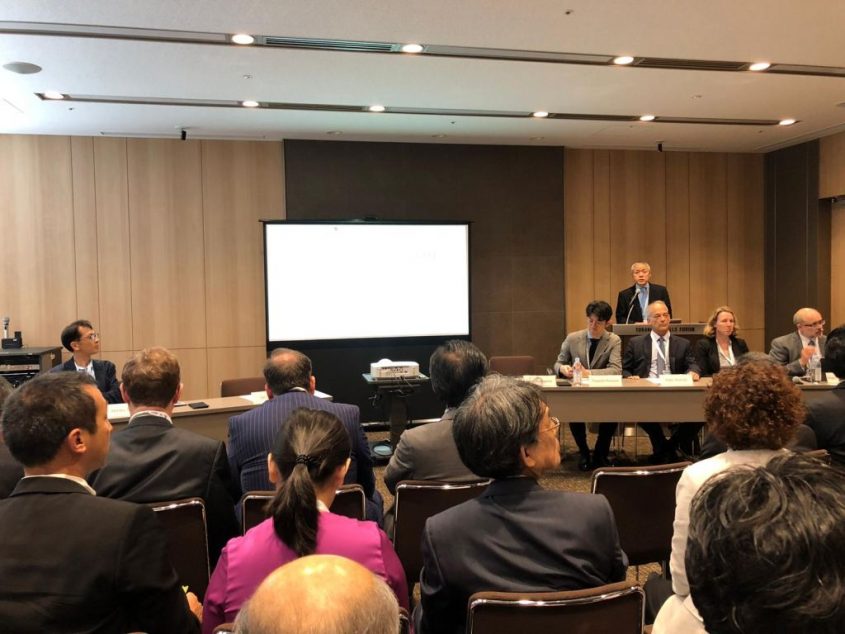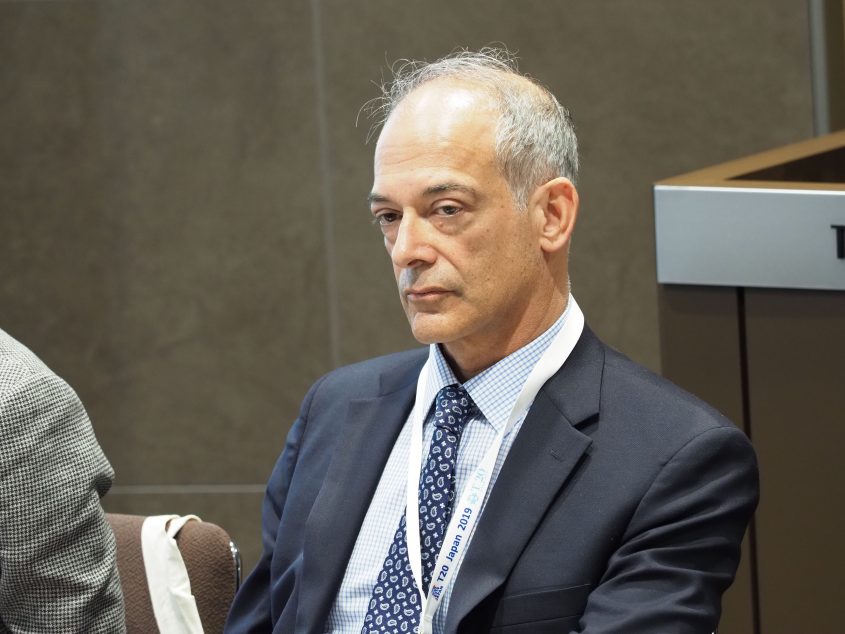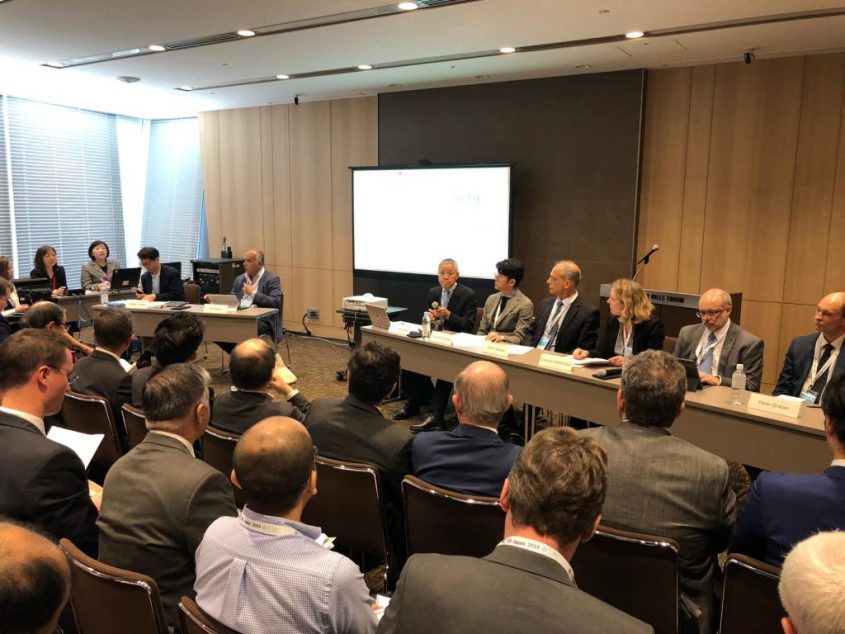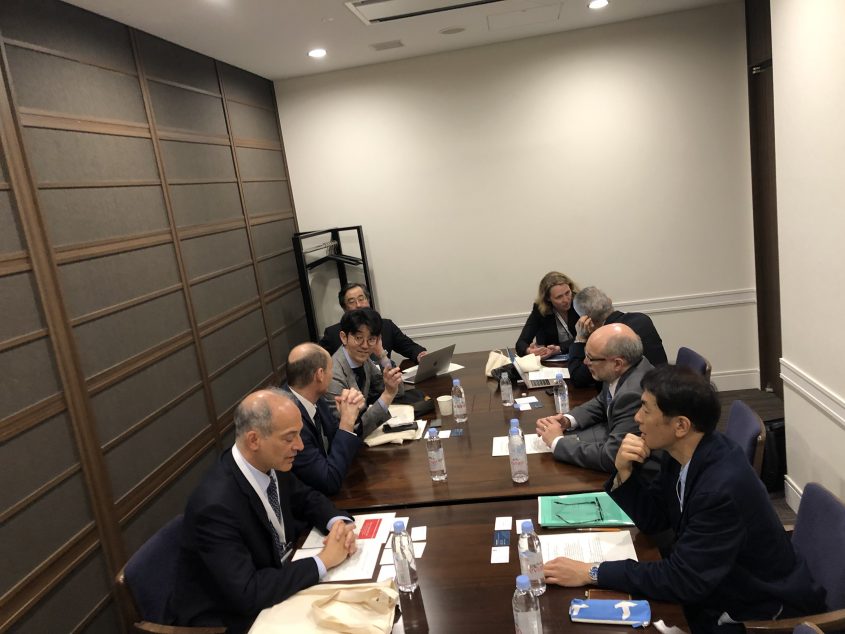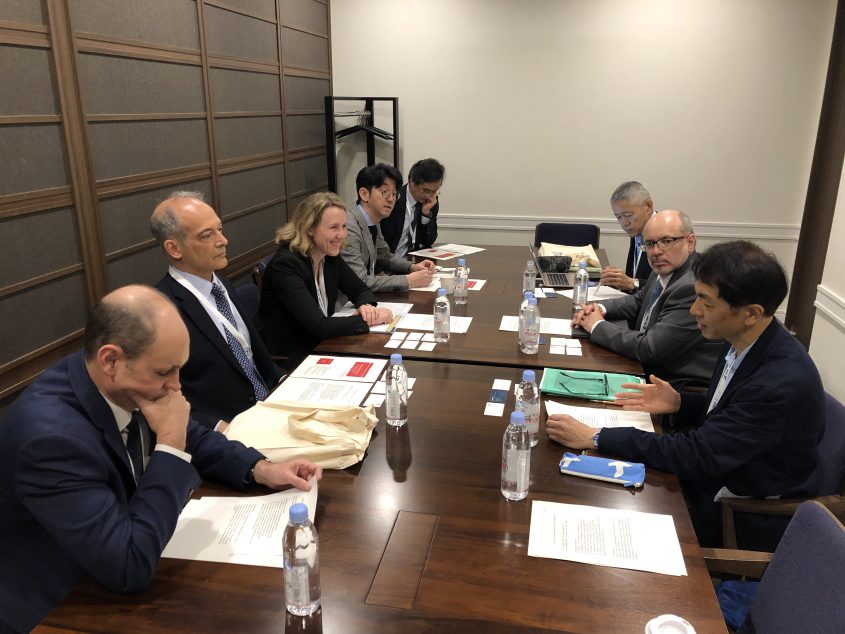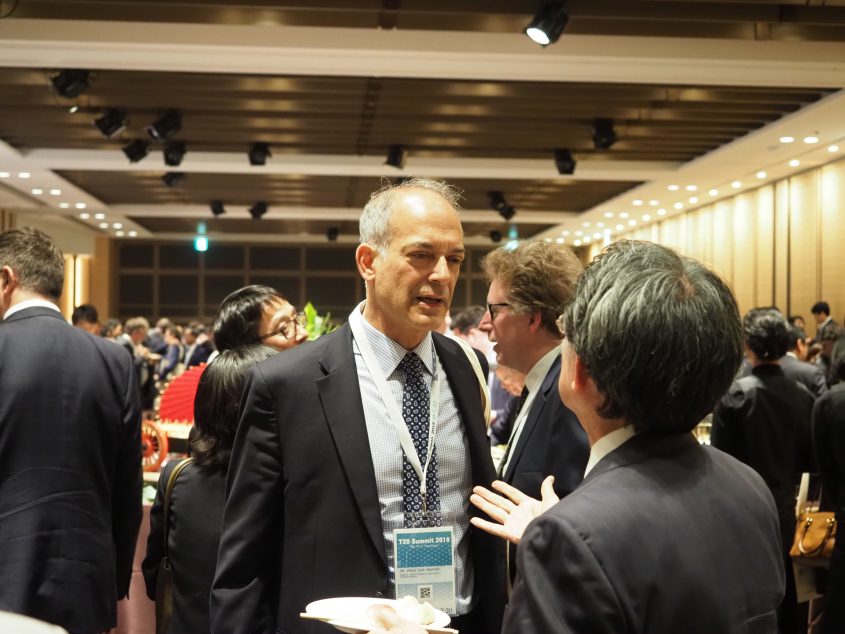AGI News
AGI Senior Fellow Peter Rashish Joins T20 for Presentation of Communiqué at Summit in Tokyo
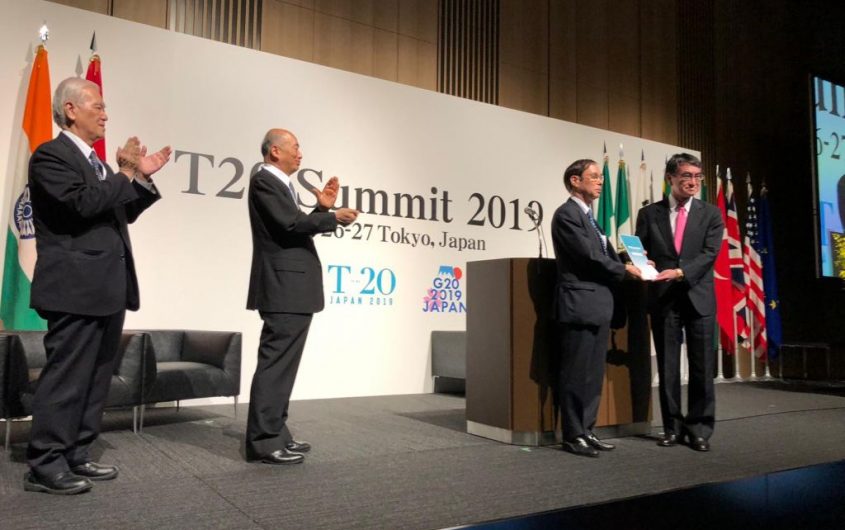

Peter S. Rashish
Vice President; Director, Geoeconomics Program
Peter S. Rashish, who counts over 30 years of experience counseling corporations, think tanks, foundations, and international organizations on transatlantic trade and economic strategy, is Vice President and Director of the Geoeconomics Program at AICGS. He also writes The Wider Atlantic blog.
Mr. Rashish has served as Vice President for Europe and Eurasia at the U.S. Chamber of Commerce, where he spearheaded the Chamber’s advocacy ahead of the launch of the Transatlantic Trade and Investment Partnership. Previously, Mr. Rashish was a Senior Advisor for Europe at McLarty Associates, Executive Vice President of the European Institute, and a staff member and consultant at the International Energy Agency, the World Bank, UN Trade and Development, the Atlantic Council, the Bertelsmann Foundation, and the German Marshall Fund.
Mr. Rashish has testified before the House Financial Services Subcommittee on International Monetary Policy and Trade and the House Foreign Affairs Subcommittee on Europe and Eurasia and has advised three U.S. presidential campaigns. He has been a featured speaker at the Munich Security Conference, the Aspen Ideas Festival, and the European Forum Alpbach and is a member of the Board of Directors of the Jean Monnet Institute in Paris and a Senior Advisor to the European Policy Centre in Brussels. His commentaries have been published in The New York Times, the Financial Times, The Wall Street Journal, Foreign Policy, and The National Interest, and he has appeared on PBS, CNBC, CNN, NPR, and the BBC.
He earned a BA from Harvard College and an MPhil in international relations from Oxford University. He speaks French, German, Italian, and Spanish.
AGI Senior Fellow and Director of the Geoeconomics Program Peter Rashish joined other members of the Think 20 to present its Communiqué to Japanese foreign minister Taro Kono at the May 26-27 Summit in Tokyo. The Communiqué contains key public policy recommendations for G20 leaders produced by the T20’s ten Task Forces on issue areas spanning the future of work to trade to artificial intelligence.
Peter Rashish was a speaker in the panel discussion on “WTO Reform” organized by the Task Force on Trade, Investment and Globalization (TF8). The task force’s recommendations (see page 12) included reinvigorating the WTO as a pillar of the rules-based trading regime; responding to the digital revolution with policies supporting data free flow; and advancing the ongoing trade agenda for sustainable and inclusive growth.
T20 Panel Discussion on WTO Reform
Tokyo, May 26, 2019
Remarks by Peter S. Rashish: The State of the World Trading System
The Role of the EU
If the world moves toward a more power-based set of trading relationships, small countries will be challenged. But large unitary states like the U.S., China, Japan, Russia, and India may be able to thrive in this sort of world because they have the full set of integrated foreign, security, economic, and financial policies at their command.
But what about the EU? It is a trade superpower, representing the EU’s 28 member states in all trade-related negotiations and institutions. But it cannot act with the same unity and force in foreign and security policy, which may be needed to supplement purely economic tools in a more competitive, less rules-based global economy.
Because of this objective position as the economic power most dependent on an orderly international economic system, it will be in the EU’s interest more than any other major economy to try to preserve and strengthen the World Trade Organization and the broader multilateral system. In other words, the EU will be the bellwether among great economic powers. It will thus be worth watching if—despite populist anti-EU slogans—there is increasing pressure to grant the EU a greater role in foreign and security policies (perhaps starting with majority voting on these matters). That will be a sign a more anarchical trading system may be here to stay.
The Transatlantic Relationship
Is a world of three competing poles of economic rules and economic activity inevitable? Are the United States, China, and the European Union going to divide up the world among them?
For 70 years the transatlantic relationship was a cross-cutting phenomenon geographically, although culturally and historically the U.S. and Europe were always close. This dynamic has especially been the case in security policy with NATO, but also in trade and economics. Witness the 2007 Transatlantic Economic Council, the Transatlantic Trade and Investment Partnership negotiations launched in 2013, or the new U.S.-EU talks that were kicked off by President Trump and European Commission President Juncker at their July 25 White House meeting.
The U.S. and the EU are two large, like-minded political and economic powers whose history has been intertwined for over 200 years. While there is a temptation now on both sides to go it alone—America First, or talk of European industrial champions and Europe-only supply chains—it is too early to conclude that either side would prefer self-imposed isolation from its cousin across the Atlantic.
Multilateralism “vs.” Liberalism
Another way to frame this debate about the future of the world trading system is to consider the roles of multilateralism on the one hand and liberalism on the other. The outlook for the founders of the GATT (the predecessor to the WTO) and the other Bretton Woods institutions (the World Bank and the IMF) was liberalism: the rule of law, free trade, a belief in economic progress, the primacy of the individual over the state, and fair and regulated competition. Multilateralism was not an end in itself, but rather the way to promote these values.
If the WTO route for trade reform remains blocked because of the diversity of its members’ economic systems and interests, there may be a shift toward the pursuit of an à la carte rather than institutional liberalism. It would be stubborn at best and self-defeating at worst to prefer a formal multilateralism without content over an ad hoc liberalism that promotes Western values and interests.
Plurilateral negotiations within the WTO (like the 1996 Information Technology Agreement) that are made open to accession to other countries on a Most Favored Nation (MFN) basis are one way. But so are more closed, preferential agreements whose benefits are available only to the parties to the negotiation, like the Trade in Services Agreement begun in 2013 and that is now on hold.
But even more creativity is needed. Not only can bilateral free-trade agreements like the EU-Japan, EU-Canada, or even the updated NAFTA agreement (USMCA) for its digital trade chapter play a role in advancing liberalism’s global economic role. The trilateral process among the U.S., the EU, and Japan to devise new WTO rules is a particularly welcome development, so much so that its mandate could be expanded to include other issues and it eventually could become the core of a liberal “coalition of the willing” comprising most if not all of these three economies’ FTA partners.
A move away from multilateralism is something that most open and advanced economies would regret. But even more dramatic would be a move away from liberalism in international economic relations.
The T20 brings together leading think tank representatives to develop concise, research-based policy recommendations to enable a broader vision in directing the G20 policymaking process. Japan chaired the T20 in 2019, following Argentina in 2018 and ahead of Saudi Arabia in 2020.



